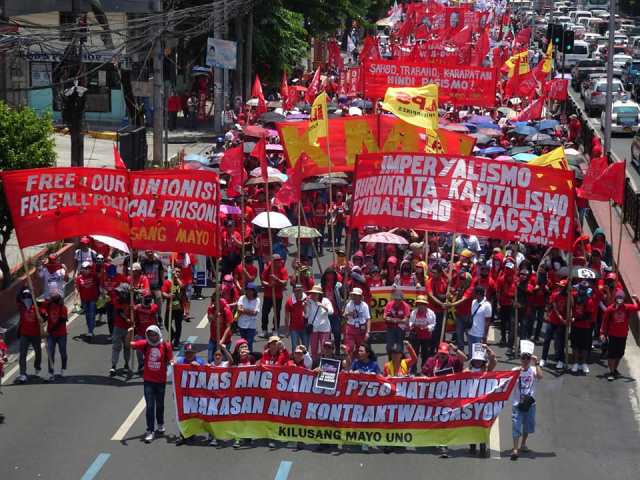Why the veto? No end in sight for “endo”

HIS CAMPAIGN promise to end the practice known as “endo” was among the most cheered during Rodrigo Duterte’s campaign in 2016, appealing to millions of workers who, on the terms of this type of contract, cannot claim employment benefits. They are the ones most disappointed by yet another broken promise of the president.
On July 26, the day before the “End Endo bill” was supposed to lapse into law, the president vetoed the “Security of Tenure and End of Endo Act of 2018” (Senate Bill 1826) despite certifying it as urgent in 2018.
The practice of “endo” involves the hiring of workers for no more than five months to avoid the regularization of employment which would mandate the payment of benefits. According to the bill’s text, it sought to strengthen workers right to security of tenure.
In reporting the veto, media recalled the bill as part of the president’s populist campaign promises, with some noting how he prioritized it in his legislative agenda. But most reports did not explain enough his reasons for not signing the bill into law, but simply quoted the president’s veto message. Articles recorded the different views of various sources cited; which they also did when endo was first discussed during Duterte’s term.
CMFR monitored the reporting of the three leading Manila broadsheets (Philippine Daily Inquirer, The Philippine Star, and Manila Bulletin), the primetime newscasts (ABS-CBN 2’s TV Patrol, GMA-7’s 24 Oras, TV5’s Aksyon, and CNN Philippines’ News Night) and selected cable news programs and news websites from July 25 to 29, 2019.
Reason for the president’s veto
The president’s veto message stated that the bill’s “sweeping expansion” of the definition of labor-only contracting would destroy the “delicate balance” between employers and workers, put management at a difficult position and adversely affect Filipino workers in the long run. While articles provided direct quotes, most reports did not bother to explain with sufficient detail what would result from the passage of the law.
Coverage failed in specific ways, using terms which needed to be defined to be understood more fully; such as “illegal labor contracting,” “job contracting” and “labor outsourcing.” These terms refer to recruitment practices which have become a part of the labor industry because of the widespread practice of endo. Unless these practices are understood, media cannot report on the formulation of a new policy, such as Senate Bill 1826, now Senate Bill 806.
In the same manner, the president’s veto required more explanatory notes from the media to clarify how the bill expanded its prohibition to cover the different kinds of contractual employment.
Better coverage
On July 29, Sen. Joel Villanueva, chairman of the Senate committee on Labor, Employment and Human Resources, refiled the vetoed bill in the Senate. This time around, media must provide the necessary context and critical analysis that would help the public appreciate the importance of the issue and understand the technicalities behind endo.
Leave a Reply